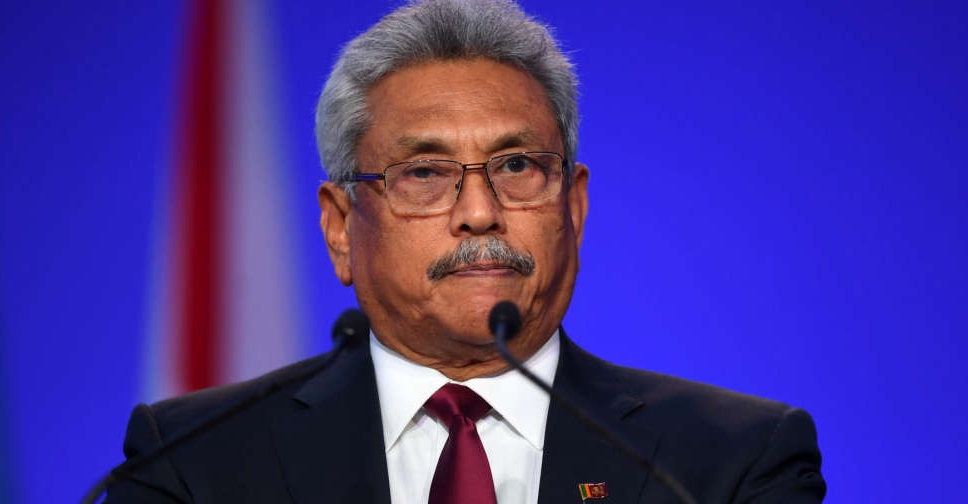
Sri Lanka's President Gotabaya Rajapaksa expanded his cabinet with 17 new ministers on Monday, but they did not include members of his family who were dropped as protests erupted over the government's handling of a devastating economic crisis.
The president's elder brother, Mahinda Rajapaksa, however, remains prime minister.
The island nation of 22 million is suffering from prolonged power cuts and fuel and medicines shortages, triggered by a sharp fall in its foreign exchange reserves that has stalled imports of essentials and brought thousands out on the streets.
Rajapaksa's government is set to begin talks with the International Monetary Fund (IMF) on Monday for a loan programme, and analysts have flagged political instability as a risk in Sri Lanka finding a way out of financial turmoil.
Faced with growing popular unrest, Rajapaksa dissolved his cabinet earlier this month and invited all parties in the parliament to form a unity government, an offer that was rejected by opposition groups and members of the ruling alliance.
"Seventeen new cabinet ministers were sworn in before President Gotabaya Rajapaksa at the President's Secretariat this morning," a statement from the president's office said.
Only five members of the previous cabinet were sworn in again, while most of the other portfolios were allocated to members of the ruling Sri Lanka Podujana Peramuna.
"The Cabinet portfolios held by the President and Prime Minister have not changed," the statement said.
Besides Mahinda Rajapaksa, no other member of the family is in the new cabinet.
Another two of the president's brothers, Basil and Chamal Rajapaksa, and the prime minister's son, Namal Rajapaksa, were part of the outgoing cabinet, and were not re-appointed.
Thousands of Sri Lankans have been protesting outside the president's office in the commercial capital Colombo for over a week, asking for the Rajapaksas to quit government.
Economic mismanagement by successive governments weakened Sri Lanka's public finances, but the situation was exacerbated by deep tax cuts enacted by the Rajapaksa administration soon after it took office in 2019.
Key sectors of the economy, particularly tourism, and the government dragged its feet on approaching the IMF for help.
Last week, the country's central bank said it was unilaterally suspending external debt payments, instead of using the paltry foreign reserves of around $1.93 billion for importing essential goods.

 UK inquiry finds 'chilling' cover-up of infected blood scandal
UK inquiry finds 'chilling' cover-up of infected blood scandal
 Iranian President Raisi killed in helicopter accident, state media says
Iranian President Raisi killed in helicopter accident, state media says
 ICC prosecutor seeks arrest warrants for Israeli, Hamas leaders
ICC prosecutor seeks arrest warrants for Israeli, Hamas leaders
 Assange given permission to appeal against US extradition
Assange given permission to appeal against US extradition
 Israel intends to broaden Rafah sweep, Defence Minister tells US
Israel intends to broaden Rafah sweep, Defence Minister tells US




